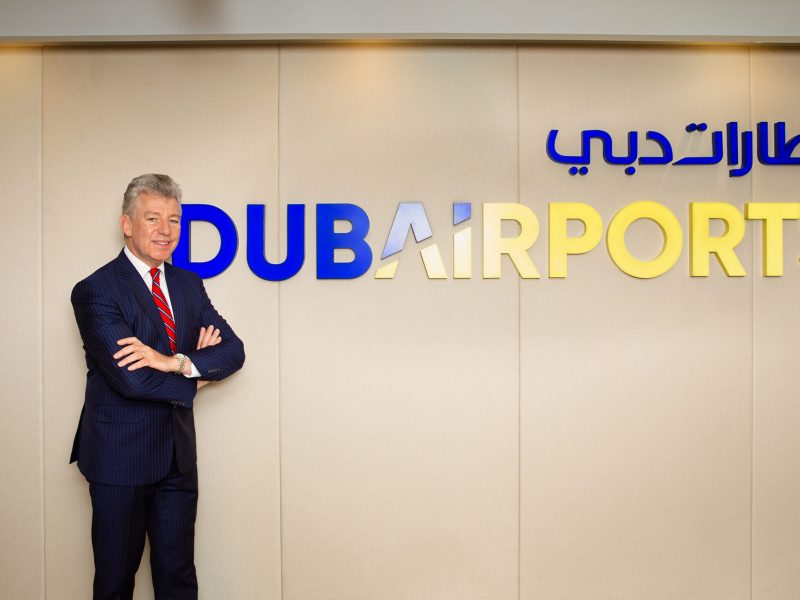Entrepreneurs
Dubai Airports Company: The Backbone of the World’s Busiest Aviation Hub

Dubai Airports Company Dubai Airports Company was established in 2008 with the aim of managing two of the region’s super-busiest airports, namely, Dubai International Airport, one of the world’s busiest airfields, and Al Maktoum International Airport, located in Dubai World Central in Jebel Ali. From the very outset, the company was equipped with its clear mission-to drive the vision of making Dubai the global aviation leader, support the city’s economy, and foster its rapid growth in tourism, trade, and logistics.
From its conception, Dubai Airports has managed passenger as well as cargo operations along with strategic expansions as well as technological up gradations which have been designed to meet the continually evolving demands of global air travel.
Continuous expansion and significant investments into technological infrastructure marked Dubai Airports’ journey toward becoming a global aviation leader. Dubai International Airport, DXB, is the world’s busiest airport, and never fails to break any record whether it comes to passenger traffic or operational efficiency; and Al Maktoum International Airport, DWC, recently been in process of massive expansions, and will be the biggest airport handling capacity wise. In the Dubai Plus initiative, Dubai Airports Company invested in increasing Al Maktoum International facilities from 66,107 square meters to 145,926 square meters in 2016. For 2017, Dubai Airports took the option of two modular data centre facilities with an area of 3,600 square meters. This technological infrastructure upgrade brought the stunning data availability of Dubai’s airports to an extraordinary 99.82% and, for the maximum annual downtime, a paltry 95 minutes. This investment in technology is quite pertinent to managing the exponential growth in passenger and cargo operations with minimal disruption in service.
Dubai Airports has a reputation for a world-class cargo operation. The company operates the Dubai International Airport Cargo Gateway, which is an extension of the earlier Dubai Cargo Village. This mega cargo terminal, with a capacity to handle 2.7 million tonnes per annum, is a testimony of the commitment Dubai Airports is making to become a leader in the aviation logistics sector around the world. The aspirations of Dubai Airports touch new heights at Al Maktoum International Airport, where it is developing the Al Maktoum Cargo Gateway, an investment of $75 million set to become the world’s largest cargo hub. It will annually process more than 12 million tonnes of cargo by 2023. It will also upgrade its position as a global logistics centre for Dubai.
Aviation and logistics are among the strategic sectors in Dubai’s economy because they constitute a considerable share of the city’s GDP. Estimates in 2011 showed that Dubai Airports Company and Emirates Airlines accounted for 26% of the country’s GDP. This shows the enormous role in propelling the economic growth of Dubai that aviation plays. Dubai’s strategic positioning and the policy of “open skies” has been giving the city so many opportunities to attract significant airlines, and it becomes a global transit point between Europe, Asia, and Africa. Dubai’s “open skies” policy will encourage global airlines to operate within the city free from normal restrictions driven by national governments. This has opened up Dubai to rapid air travel development with airlines that have routes all over the world opening routes through Dubai. This policy also enhances competition among carriers, because service and fares to passengers will be improved.
Dubai Airports has adopted its vision for shaping the future of aviation with innovations and state-of-the-art technologies. Modest data centres nearly operating with zero downtime are one example of how Dubai Airports uses technology to enhance operations. Advanced technical solutions will be a critical part of sustaining operational efficiency and therefore ensuring world-class customer service amid increasingly rising passenger and cargo traffic.
The investments into sustainability and environmental efficiency also form the future of aviation in Dubai. The company is committed to taking its carbon footprint down and absorbing green technologies so that it may eventually be in line with Dubai’s vision in becoming a sustainable global city.
Dubai continues growing to become a global city, and Dubai Airports Company readies itself to scale up further operations. Al Maktoum International Airport, after completion, will feature the highest capacity to transport passengers and cargo, while Dubai International will be a significant airport for global air traffic. Because of its infrastructure, forward-thinking leadership, and commitment to technological excellence, Dubai Airports not only shapes the future of aviation in the Middle East but also redefines global standards for airports.
